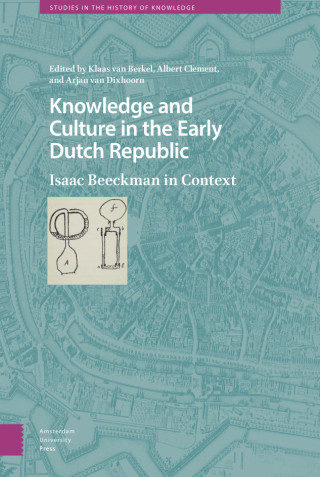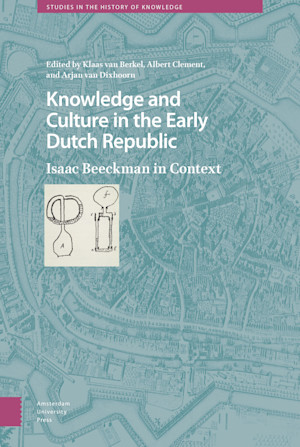List of illustrations
A Note on Abbreviations
Preface
1. (Klaas van Berkel, Albert Clement, and Arjan van Dixhoorn) Introduction
Part I. Assessing Beeckman
2. (John A. Schuster) Isaac Beeckman in the Context of the Scientific Revolution
3. (H. Floris Cohen) Isaac Beeckman at Gresham College in 1668. An Alternative ‘As if’ Scenario
. (Klaas van Berkel) Framing Beeckman. Cornelis de Waard as Editor of the Beeckman Papers
Part II. Understanding Beeckman
5. (Tiemen Cocquyt)) ‘Like Water, that Is Forced to Flow Through a Narrow Opening’: Isaac Beeckman’s Early Conceptualization of the Telescope
6. (Edouard Mehl) Optics, Astronomy, and Natural Philosophy: Beeckman, Descartes, Kepler, and the Dutch Connection
7. (Elisabeth Moreau) Combining Atomism with Galenic Medicine: The Physiological Theory of Isaac Beeckman (1616-1627)
8. (Daniel Moerman) Physician, Patient, Experimenter, and Observer. Isaac Beeckman’s Accounts of Illness and Death
9. (Samuel Le Gendre) Beeckman, Descartes, and the Principle of Conservation of Motion
10. (Fabrizio Baldassarri) Isaac Beeckman’s Corpuscular Study of Plants
Part III. Situating Beeckman
11. (Huib Zuidervaart) Networks of Knowledge in Middelburg Around 1600. The Context of Isaac Beeckman as a Young Man
12. (Albert Clement) Musical Culture in Middelburg in the Times of Isaac Beeckman
13. (Arjan van Dixhoorn) Consten-Culture. Beeckman, the Rhetoricians, and a New Style of Philosophizing
14. (Fokko Jan Dijksterhuis) Harnessing the Elements. Beeckman and Atmospheric Instruments
15. (Vera Keller) ‘Communicated only to Good Friends and Philosophers’: Cornelis Drebbel, Isaac Beeckman, and the Circulation of Artisanal Philosophy
16. (Semra Meray) What’s in a Language? Dutch and Latin in Isaac Beeckman’s Journal
17. (Klaas van Berkel) ‘Ut patet in figura.’ On the Use of Images in Beeckman’s Journal
18. (Klaas van Berkel, Albert Clement, and Arjan van Dixhoorn) Concluding Remarks
Index
On the Authors
Acknowledgements

